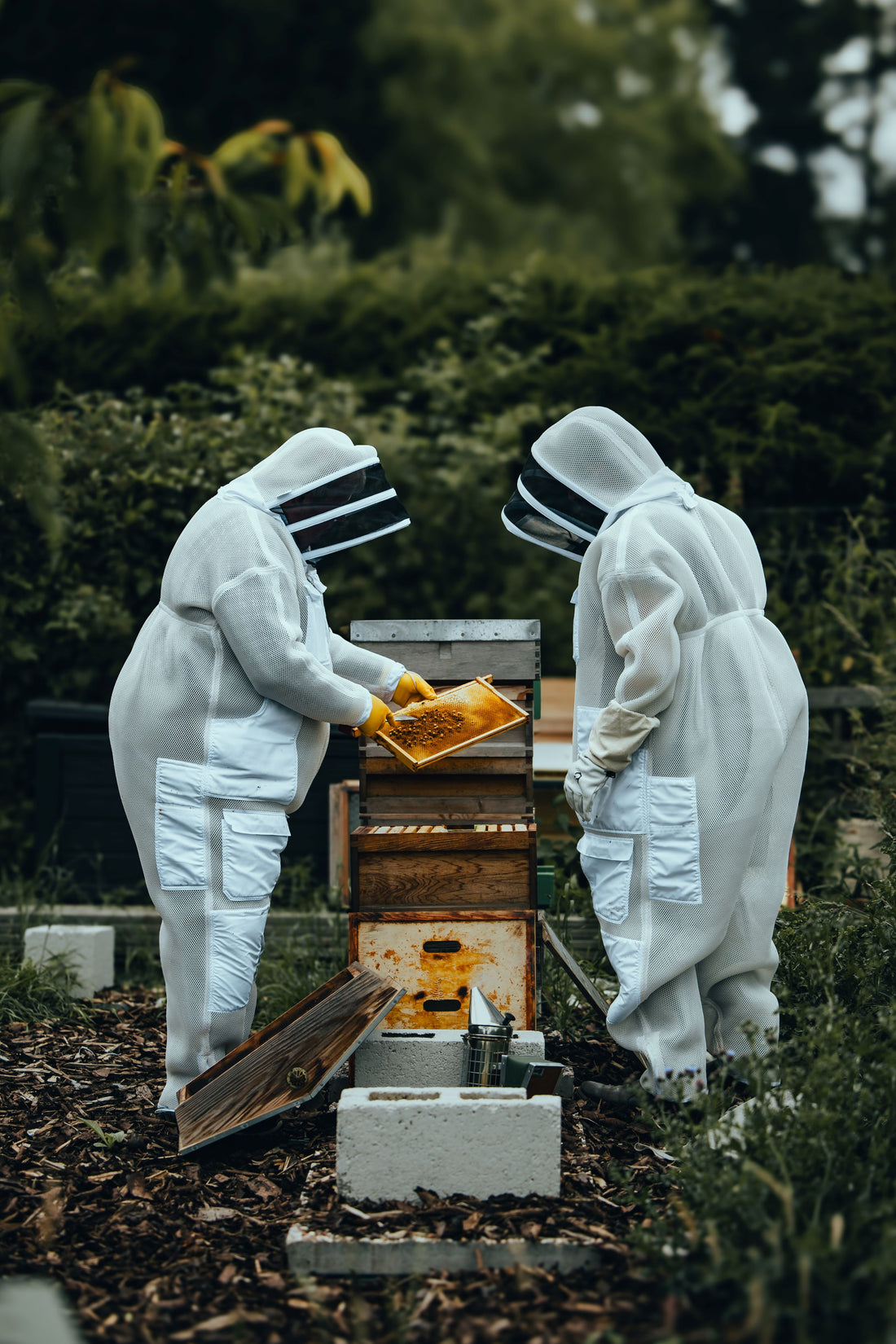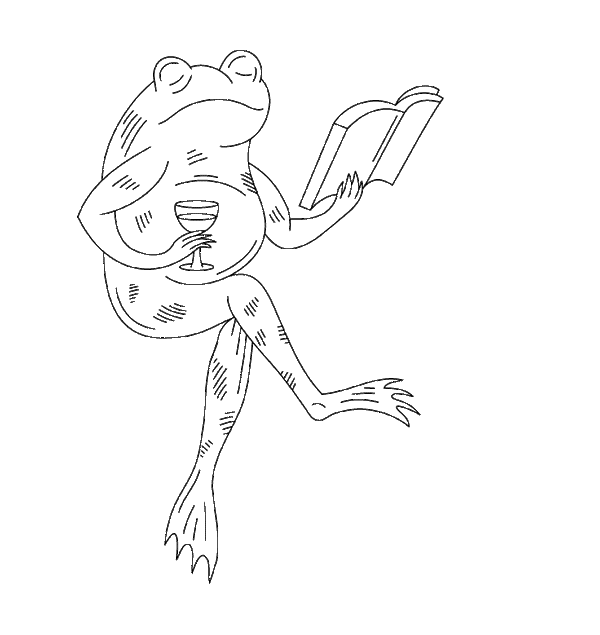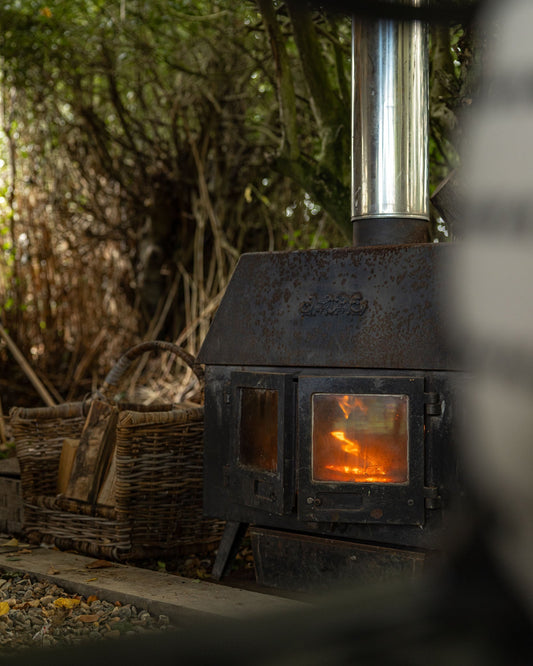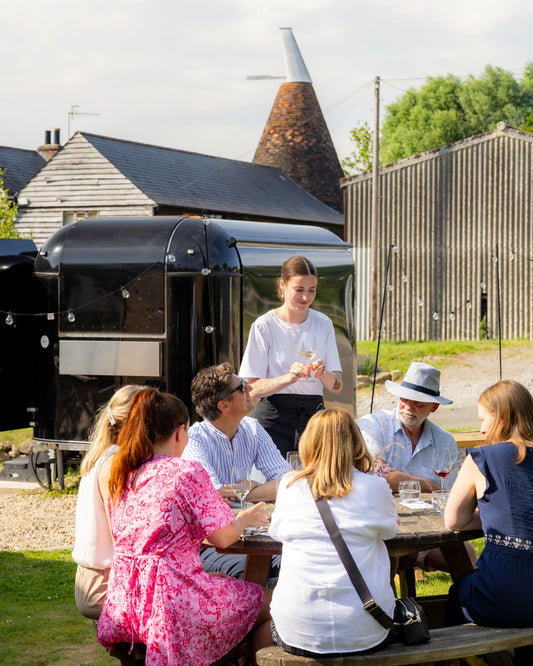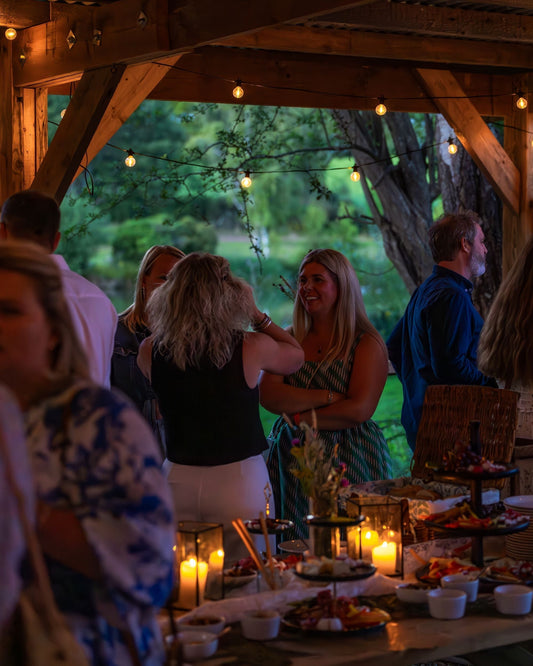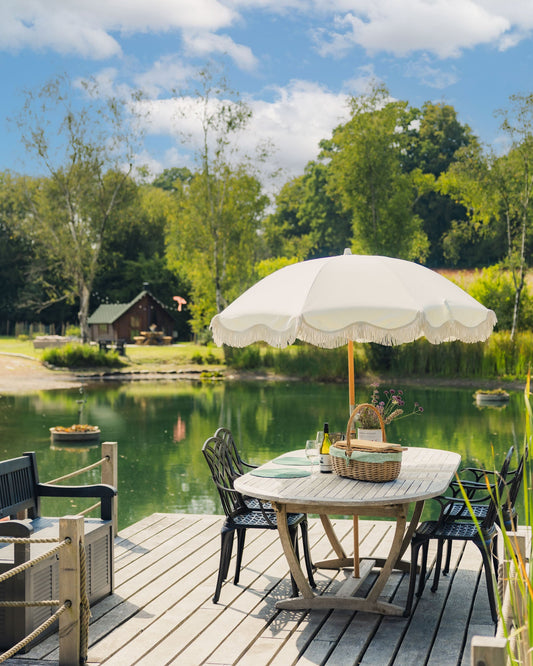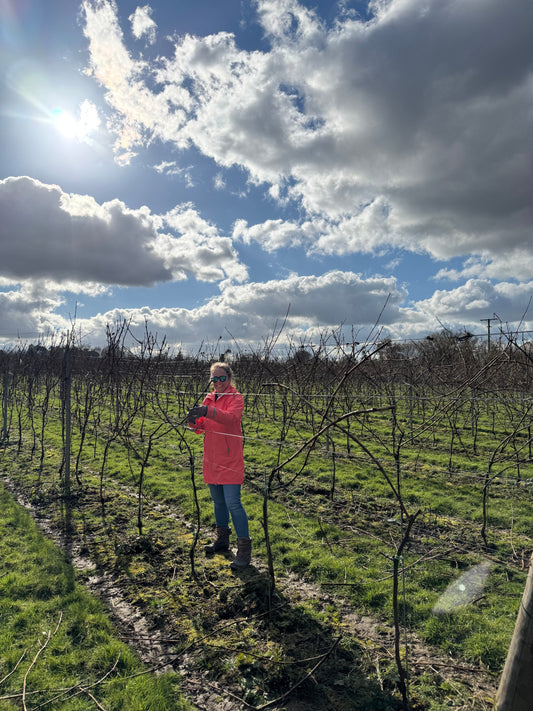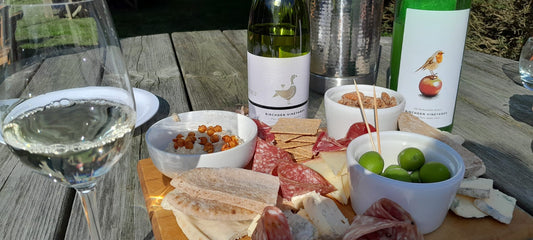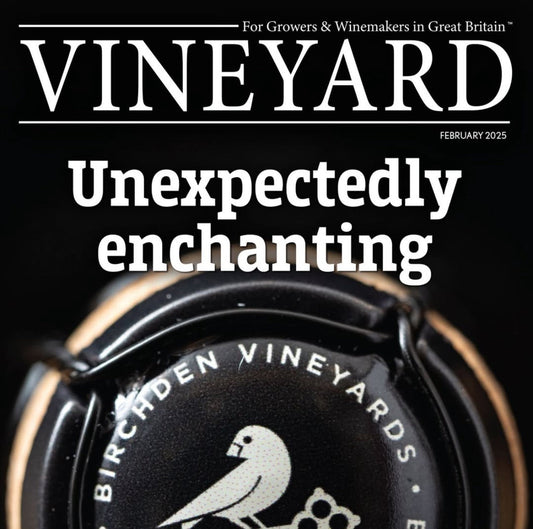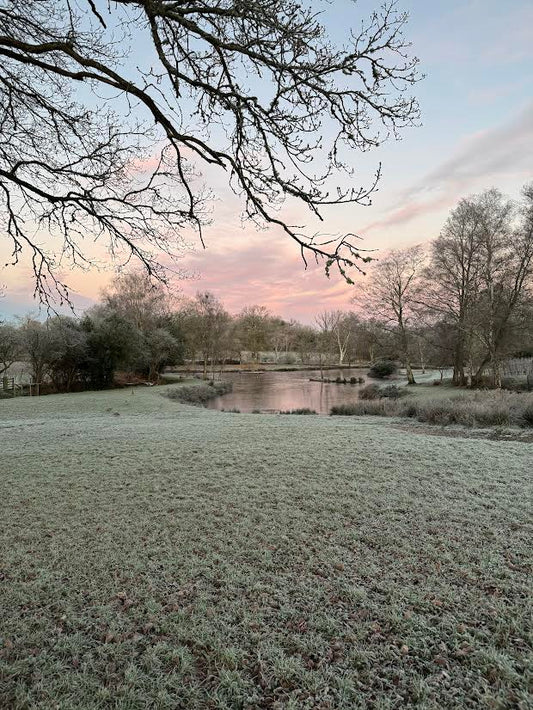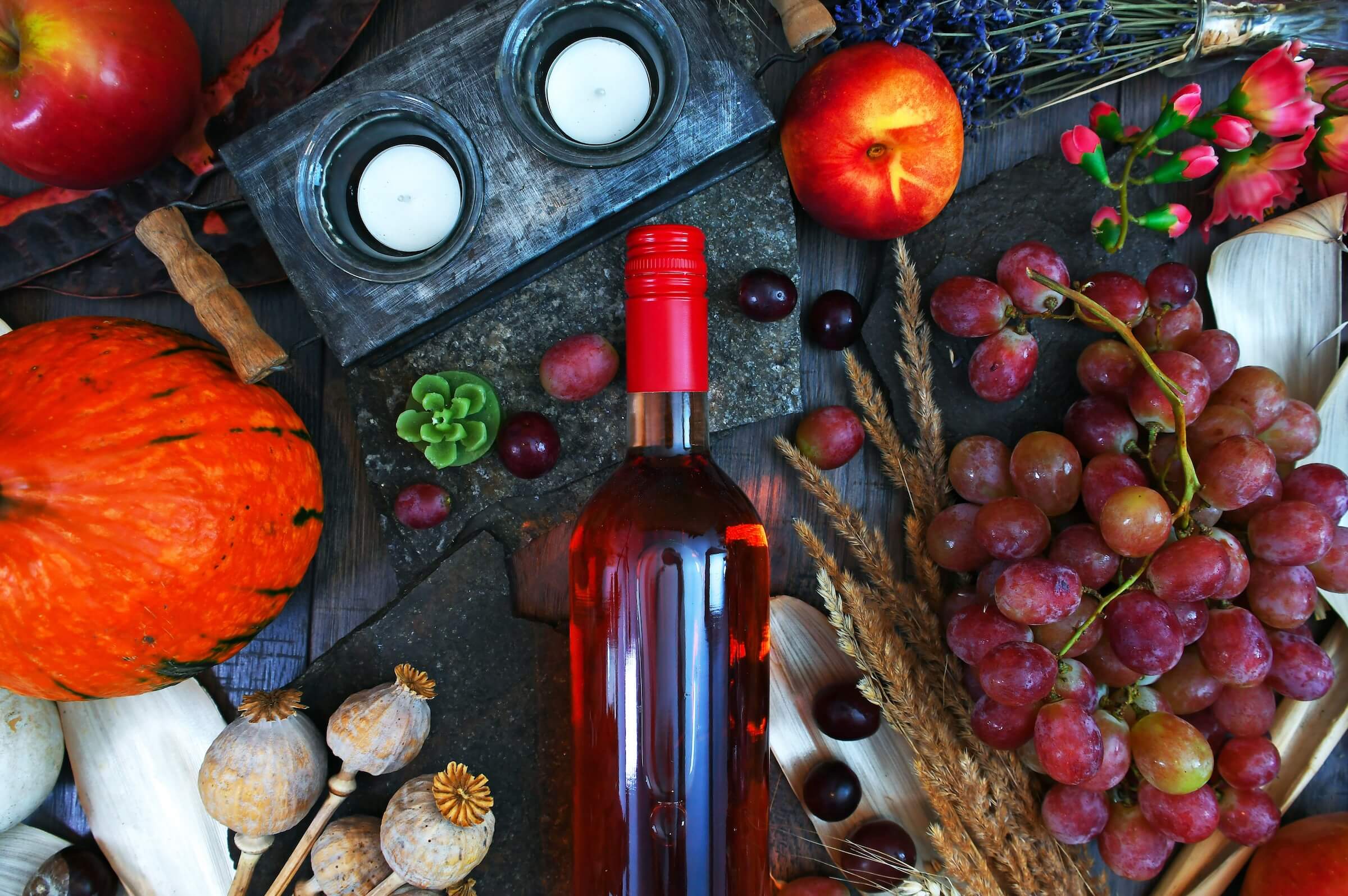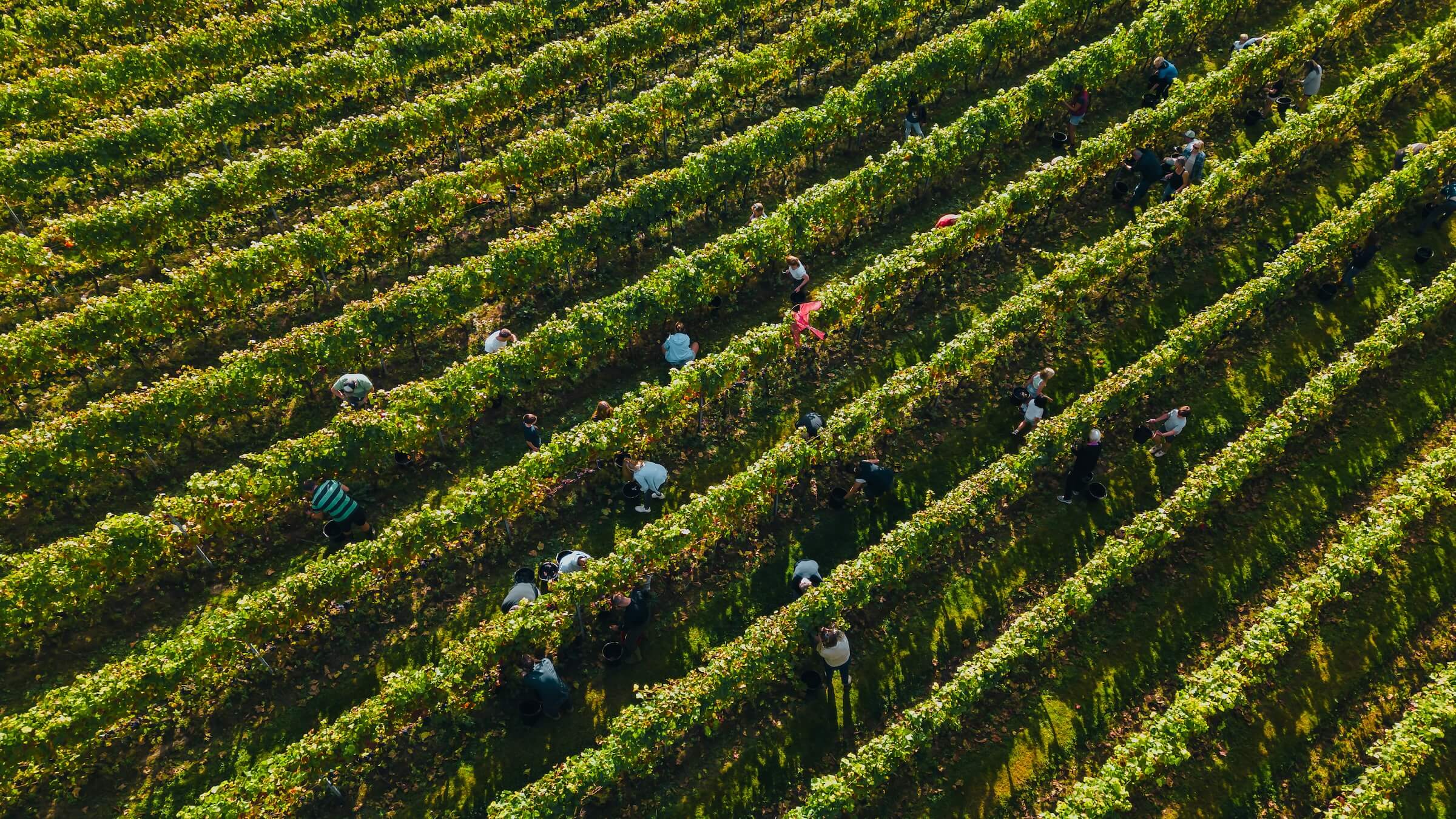This picture always brings us joy. Ralph is one of the co-owners at Birchden Vineyards and here he is doing what he loves with teammate John. Along with our bee expert Roxanne, they're working year-round to take care of our precious hives.
In the autumn, the beekeeper’s focus is making sure the hives stay healthy during the winter months and preparing them for the shorter, colder days.
This means making sure the bees have enough food. Nectar is in short supply over winter so the bees rely on their own stores. To ensure that they do not starve, we put sugar in the form of either syrup or fondant onto the hives to replenish the stores.
We also need to make sure the hives are kept warm, to cope with the colder weather. Poly hives have their own insulation, but wooden hives can do with some help. We do this by putting them in protected sites, but we also provide thermal insulation to help conserve heat.
Finally, after the main crop of honey is removed it is the time to treat for varroa mites, an invasive pest that, if left unchecked, can wipe out a colony. Here we put treated strips into the hive which allows all the bees to gain some protection from mites.
It is a natural part of the bees’ life cycle for a number of bees to die in the autumn leaving the queen and a smaller colony for the winter. So bee hives in winter are very much smaller than they are in summer with just a single box where the queen and the overwintering colony snuggle down to wait for spring.
Once all this in place, all that needs to be done is to check that the colonies are safe and have sufficient food. This leaves the beekeepers time to bottle the honey, melt the wax and prepare the equipment for next season.
Known by us informally here as ‘The Bee Team’ Ralph, John and Roxanne are anything but. Definitely ‘A’ Team energy here, as a successful year of bee husbandry draws to a close.
